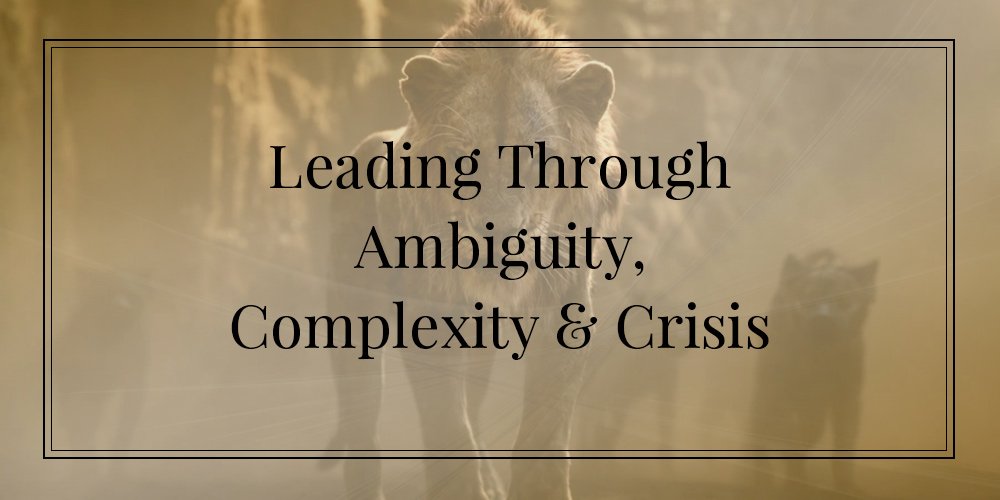Global authority figures who are currently dealing with chaos, complexity or crisis, are experiencing what is known as adaptive challenges.
Adaptive Challenges are fraught with ambiguity and require adaptive capabilities such as sensemaking problems, positive deviance for innovation and establishing calm.
The through-out history we have seen examples of authority figures acting with or without leadership. The fragility of significant change such as political upheaval, financial crisis, or health epidemics creates vulnerable environments where authorities succeed, or in fact, fail in their acts of leadership.
However, to place the burden solely upon authorities is to ignore the significance of interdependency, which is a more distributed leadership model. Where authorities, employees, households, and other stakeholders play a contributory role in solutions.
In times of stability, it is expert authoritative management that is provisionary of resources, direction, and order to maintain the status quo. This is known as Technical challenges.
Technical or Adaptive skills are both necessary for bringing stability to a problematic environment, but in times of flux, adaptive leadership skills are critical to successful leadership.
Technical challenges are known as simple problems, which do not require leadership, but rather good management. Indicators of technical challenges include:
- Problems that are easily identifiable
- Resources are readily accessible
- Minimal disruption to the workplace ecosystem.
For example, software issues that reduce efficiencies, which requires an upgrade is a technical challenge given the simplistic resolution of the original problem.
However, an Adaptive challenge is characterised by complex and significant problems that cause disruption to people, processes and ecologies. For instance,
- Problems are difficult or ignored
- Requires diagnosis and experimentation
- Solutions require innovation and positive deviance
Both capabilities are necessary to bring stability to problematic environments. However, the dialogue deepens as we acknowledge that many authorities attempt to solve Adaptive Challenges with Technical Solutions.
This approach exacerbates the existing problem by further dividing loyalties, creating dissension by those looking for trusted leadership.
Adaptive leaders understand that further development of skills and capabilities are required to navigate current and future complexities and facilitate trust in amongst paradoxes.
Adaptive leadership is developed by embracing the idea of rumbling in the disequilibrium zone of eustress and to think deeply about the complexities of problems as you embark on your profound leadership journey.
Ilsé Strauss is an Organisational Adaptive Leadership specialist based in Perth, WA. As a Postgraduate at Murdoch University, Ilsé researches leadership capabilities associated with complex situations. Her company provides Management Consulting, Executive Coaching, Online Courses and Workshops in Adaptive Leadership.
Find out more about our Adaptive Leadership online course

